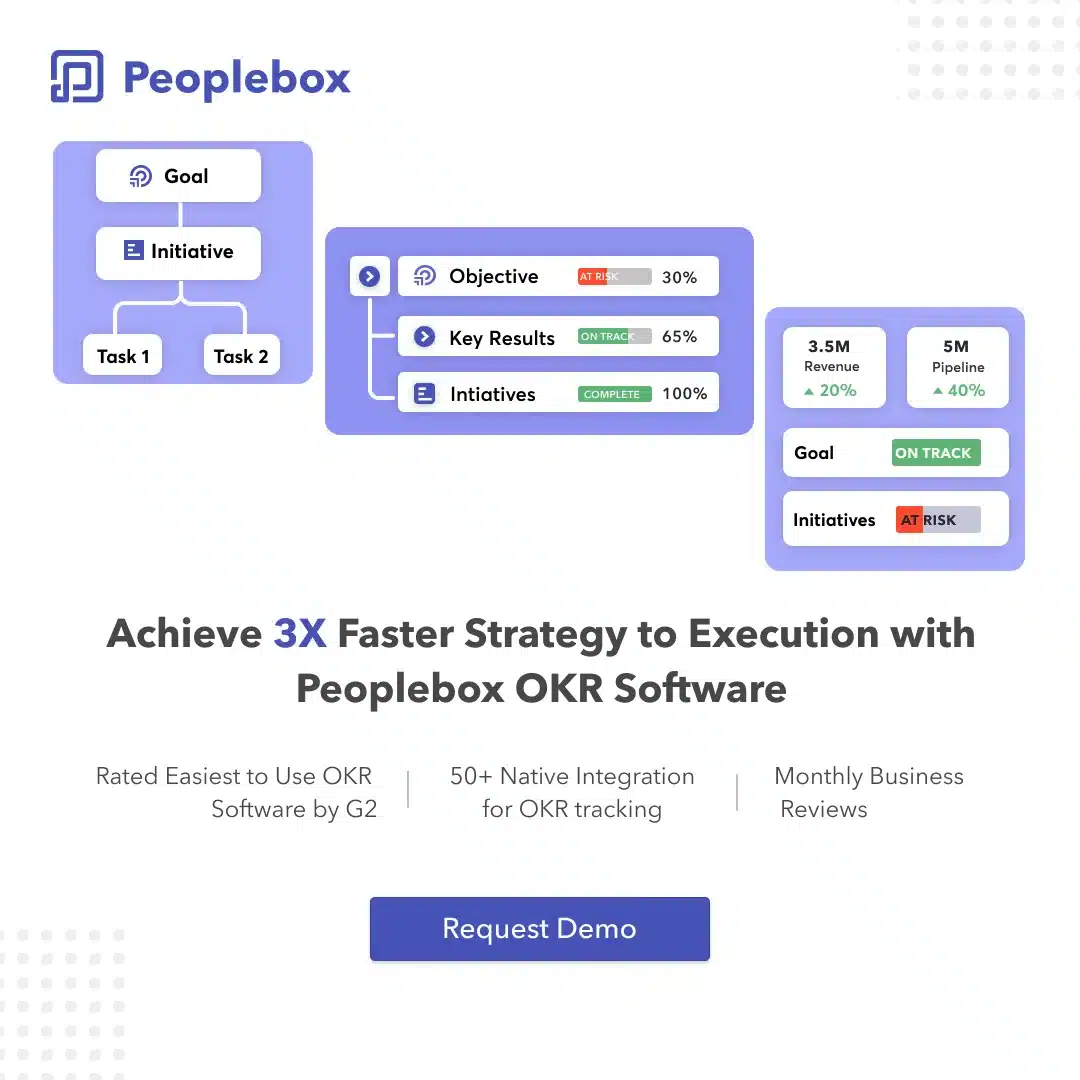
Employee motivation is among the manager’s key responsibilities to drive enhanced productivity.
Sadly, 70% of the millennials cite lack of motivation at work as a common problem. Lack of motivation is a bad for an organization… denting it’s image and production capacity. And an employee may feel demotivated for several reasons: team dynamics, quality of work, toxic relations with the manager, etc.
And if we tell you 10 PROVEN Tips that don’t cost a fortune and will make your employee motivated:
- Motivated to strike through every corporate task,
- Building healthy trust with organization, and
- Becoming 43% more productive overnight.
Scroll further to read how managers use one on one meetings motivating employees. Then we go through the tips.
How One On One Meetings help in Motivating Employees?
One on one meetings are a manager’s opportunity to understand the working style and persona of her direct reports. Direct reports are expected to discuss about their problems freely.
Adding up, being live in nature.. managers give them a personalized suggestions.
Hence, employee is more likely to be engaged during the one on one meeting with manager.
On the flip side…
An ill-planned conversation can defeat the whole purpose of one on one meetings.
Being a manager, it’s your duty to devise innovative ways to streamline the communication & boost your employees’ morale.
At Peoplebox, we advise you these PROVEN 10 ways to motivate your employee during 1:1 meeting.
10 ways to use one on one meetings for motivating employees
1 Ask them ‘how motivated are you’ before the meeting
As a manager, you don’t just ‘ manage’ or supervise people, you’re accountable for their well-being and happiness at the workplace.
The biggest responsibility of a manager is to understand what intrinsically motivates people and then, create a culture that allows them to find that motivation within themselves.
You’re not required to dictate people; rather you should be guiding them.
A one on one meeting is a tool to help a manager strengthen their role of a guide.
Every one on one meeting aims at helping the team reach their maximum potential and highest of their motivation level.
Thus, it is very important to know their state of mind before the meeting begins.
While setting a meeting agenda, you can ask your employees to rate their motivation on a scale.
This simple exercise will set the tone of your conversation. Your direct reports’ rating will give you an insight into their past week and will help you frame the agenda better.
A demotivated employee may be facing challenges at the workplace and you can discuss them in your one on one meeting.
A motivated employee must be getting the right support and favourable situations.
You can find out what those positive situations are and optimize them more for better results.
Pro Tip: Find out if your direct reports are “happy”.
An employee’s happiness quotient depends upon 4 factors – supervisor, recognition, job, company.
Knowing how happy (or unhappy) they are on these factors will help you in setting a roadmap for their satisfaction and success.
2 Start with a check-in about general well-being
Imagine… Matt, an employee, has had a rough week at home and it has adversely affected his work.
He was apprehensive about his one on one meeting because of his performance and said a meek “hello” to his manager.
His manager, on the other hand, gave him a big smile and asked if he was doing okay. A light-hearted banter would help them in understanding you better.
He immediately relaxed and opened about his problems and his mind set.
A simple question about their health and personal life will help find a human connection with you.
Had it been a formal greeting and a straight jump to work talk, he would have been intimidated and hesitant. That’s why, keeping the conversation formal and strictly work would be detrimental to this cause.
At present, the majority of the workforce has been forced to shift to remote work due to the Coronavirus outbreak.
Your direct reports are facing unprecedented challenges and unique issues in this work from home era. Hence, becoming eminent to devote some time in a remote one on one meeting for inquiring about the well-being and the health of your direct report and her family.
3 Provide personalized feedback
When you give honest feedback to your direct report, they realize that their contribution matters and has an impact on the team goal.< /p>
A quick email, a pat on the back are all different ways of motivating employees through feedback.
But, nothing compares to sharing feedback in a one on one conversation. They are more personalized, heartfelt and detailed.
As a manager, you can spend more time talking about the employee’s strengths and molding them for better efficacy.
Explain to your direct reports, how their actions have helped in the larger context. Stress on favorable behaviour and encourage it in the future.
You can discuss every tiny aspect of their performance in a one on one meeting.
It is your safe haven where you can solely concentrate on your direct report and their betterment.
4 Discuss the performance blockers and challenges
Let’s circle back to the happiness quotient here.
Like there are reasons for an employee to feel happy and motivated, there’re also underlying causes for dissatisfaction and dejection.
As a manager, you are required to find out what is stopping your direct reports from performing to their best.
Your team consists of direct reports who deal with different sets of problems every day.
One of them might be facing a personal issue while the other may not be responding well to your leadership style.
As their leader, you need to help each one of them find a solution to remove their blockers.
And 1:1 meeting sets the perfect pitch to understand the root cause of the problem of every direct report. And give personalized suggestions to eradicate the same.
To bring out the blockers, starts with asking right questions…
Here’re, the right questions in a one on one meeting a manager can ask-
- Do you think you would do this (a task) any other way if given a chance?
- Would you like to change something about this action for better results?
- You know, I used to follow the same rule when I was at your place but one of my bosses showed me a better way. Can I share that with you?
- Let’s figure out different workarounds to navigate through this problem. Do you have any suggestions?
5 Help employees with their Day-to-Day Task

For example, you may promise an employee to get their laptop replaced if that’s proving to be a hindrance in their daily tasks.
Similarly, ask a direct report to prepare a task list daily to improve her organizational skills.
When you get the laptop replaced immediately or ask your direct report about her task list in the next one on one meeting, you inadvertently tell them that you’re committed towards their growth.
Your commitment to and involvement in their progress are enough to motivate them for performing better.
Thus, it is important to keep a tab on your conversations and their outcomes for shaping up a happy team.
Pro Tip: Peoplebox one on one meeting software (try for free) allows you to document your conversation, keep a track of action items, and even collaborate on the agenda.
Effective One on One Meetings
We built a software that automatically schedules, lets you set agenda, take notes, exchange feedback and track actions – all in one place.
6 Discuss career growth
Research suggests that career path is among the top five factors for considering a job opportunity.
In fact, employees who are assured of a clear career progression are more likely to be engaged and motivated.
A one on one meeting is a perfect opportunity to discuss career plans with your direct reports.
Instead of providing them with generic advice, you can carve out a specific roadmap for their growth keeping their strengths in mind.
Similarly, you can even point out their roadblocks and suggest ways to eliminate them.
As a manager, your opinion and suggestion about an employee’s career trajectory will matter the most.
You can help them hone their skills and overcome their weaknesses.
Your interest in their career will motivate them to bring their best effort to the table.
Pro Tip: Avoid asking “where do you see yourself in next 5 years”. Instead, ask a specific question to envisage your direct reports’ thinking.
A manager can questions like:
- What task do you enjoy the most?
- Is there any job role where you think your capabilities will fit better?
- What professional development would you like to see in yourself at the end of this quarter?
7 Be their mentor
People follow those who direct them to the right path. Right mentoring can help your direct report to reach their full potential. It creates a positive ambience in your team and motivates employees to contribute better.
Designation or qualification will not earn manager the trust of his direct reports. Nor will your professional achievements help in motivating them.
Your willingness to help them become the best version of themselves will encourage the
m to be motivated at work.
Remote meetings will help you become effective mentor. During a meeting, share your experiences or show inquisition to know your employee’s problems.
8 Make them feel valued

A simple gesture of asking for your direct report’s view on a certain topic can boost their morale and productivity by heaps.
When a senior leader trusts an employee enough to listen to their viewpoint, their faith reinstates in their abilities. As a result, they become motivated to take ownership of their work.
Virtual meetings give the right platform to ask your direct report about their opinion on the team, the work and ongoing strategy. It will help direct reports feel significant and inspire them to contribute better to the organization.
9 Accountability matters
Your direct reports, too, are an important stakeholder in your organization.
Their growth and actions are your responsibility.
Thus, being accountable for them is not only necessary but will also signify your sincerity about your duties.
When a direct report knows that manager holds responsibility, or the manager got their back, they are motivated to go beyond the call of duty to uphold trust in the organization.
A manager’s genuineness during one on one meetings helps him develop a long-lasting relationship of mutual trust with the employee.
Outcome – A trusted-employee is highly motivated & brings 50% higher productivity.
10 Recognition is important

Nothing motivates an individual more than recognition for their hard work.
It is an acknowledgement of their efforts and is a testimony to the fact that their work is being noticed at the top level.
More importantly, recognition helps in indicating that a direct report’s efforts are in the right direction. Boosting their confidence… bringing better productivity.
During a one on one meeting, you have the right opportunity and space to highlight the positive actions of your direct report and emphasize on these traits.
Here are 8 ideas for employee recognition during one on one meetings.
Your recognition of their work will motivate them to maintain their dedication and even innovate at their job role.

Wrapping Up
A one on one meeting is a strategic tool to help increase the level of employee motivation and engagement in a team.
Main purpose of one on one meetings is to elevate the level of togetherness and confidence while inspiring each other to remain focused.
If an employee doesn’t feel reenergized after a one on one meeting, it is likely that you are making some mistakes you can easily avoid in your one on one meetings.
One on one meetings are meant to blur miscommunication and strengthen the culture of dialogue.
In the end, our suggestion would be to be your authentic self in a one on one meeting and allow your employees to follow suit.
After all, nothing motivates an employee more than a manager who stays true to her words.








